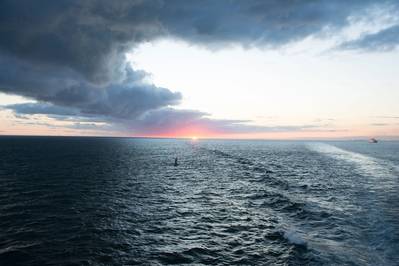Afghans Recount Moment Migrant Boat Sank on Deadly Channel Crossing
Idris, 22, was convinced he was going to die when the small boat he and dozens of other migrants were on began to sink in the Channel as he tried to reach England from France.
It was only thinking of his parents back home, and the fact that he had embarked on this perilous journey to help his family, that gave him the strength to stay afloat, he told Reuters.
Six people died when the boat sank on Saturday. More than 60 people, mostly Afghans, were saved by French and British rescue teams, including Idris and 15-year-old Fawad. In Calais, France, four days later, the two told Reuters about their ordeal.
"I was dead 99%," Idris said, speaking in Pashto via an interpreter. First the motor broke down and then water started pouring in.
"When (the boat sank), people were screaming, it was a very difficult moment. Six people died right away."
The survivors helped each other by taking turns in clinging to or sitting on what was left of the boat, Idris said. Those not clinging on had to swim alongside and stay afloat until it was their turn to rest.
"We thought of death, and prayed that our sins be forgiven. We also thought of our parents. When you see death, you automatically remember your parents, because whatever we are doing, we are doing it to earn something for them."
The Channel between France and Britain is one of the world's busiest shipping lanes and currents are strong, making the crossing on small boats dangerous.
"I was fast losing the strength to swim, but I kept trying very hard to keep afloat," Idris said. "I kept swimming for the sake of my parents and my brothers and sisters, because we have left home and are going through all this suffering for their sake."
People smugglers typically overload rickety dinghies, leaving them barely afloat and at risk of being lashed by the waves as they try to reach British shores.
"There were far too many passengers. The waves were very strong," Idris said.
"When the boat split up, it was quite dark, and we could not see anything," said Fawad. "We were very scared."
'TOO DANGEROUS'
Two Iraqis suspected to be people smugglers and two Sudanese suspected of helping them in return for a lower price for the crossing were put under formal investigation over the six deaths, a French judicial source said on Thursday.
"I'm happy that I did not die and I will not try again to go to the UK," said Idris, who left Afghanistan a year ago and has been in France for eight months, waiting to go to Britain, as do many migrants who gather on France's northern shores.
"If anyone wants to ask for asylum it's best to ask for asylum in France ... they should not go to the UK, it's too dangerous."
Fawad, wearing a white hoodie, is less sure of what he will do next, but is equally traumatized by what they went through.
Choosing not to show his face, Fawad recounted his fear when the boat sank. First he swam, and then he became unconscious, he said. "I do not know what happened to me," he said.
Asked what he will do next, Fawad, who has been in France for two months, mostly sleeping on the streets, first says he will try again to make the dangerous Channel crossing, but later says: "Whether I will go to France or to London, I don't know."
More than 2,000 migrants from countries including Iran, Syria, and Afghanistan have reached Britain in small boats just this month, encouraged by better weather to make the journey in their bid to claim asylum in the United Kingdom.
Conservative British Prime Minister Rishi Sunak has pledged to "stop the boats" as he prepares for an election expected next year.
(Reuters - Additional reporting by Sheree Sardar; Writing by Ingrid Melander; Editing by Janet Lawrence)












